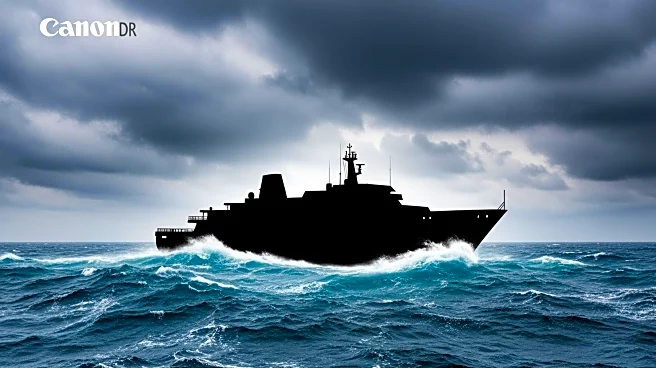What is the story about?
What's Happening?
China's Commerce Ministry has announced sanctions against five subsidiaries of South Korean shipbuilder Hanwha Ocean, citing their involvement in a U.S. investigation into China's shipbuilding industry. This move is part of ongoing trade tensions between China and the U.S., exacerbated by President Trump's efforts to bolster American shipbuilding. The U.S. Trade Representative initiated a Section 301 trade investigation in April 2024, highlighting China's dominance in shipbuilding as a challenge to U.S. businesses. In response, China has imposed new port fees on U.S. vessels, mirroring similar fees by the U.S. on Chinese ships. Hanwha Ocean, which has been strengthening ties with the U.S., acquired the Philly Shipyard in Pennsylvania and plans significant investments to support U.S. shipbuilding capacity.
Why It's Important?
The sanctions against Hanwha Ocean's U.S. subsidiaries underscore the escalating trade conflict between China and the U.S., with significant implications for the global shipbuilding industry. China's actions could disrupt international shipping and affect U.S. efforts to revitalize its shipbuilding sector. The sanctions may also impact South Korean industrial sectors, prompting Seoul to assess potential damages. The situation highlights the broader geopolitical struggle between the world's largest economies, with potential repercussions for global trade dynamics and economic stability.
What's Next?
The trade tensions between China and the U.S. are likely to continue, with potential for further retaliatory measures from both sides. The sanctions could lead to increased diplomatic efforts by South Korea to mitigate impacts on its industries. Additionally, the planned meeting between President Trump and Chinese leader Xi Jinping may be affected, although working-level talks between the two countries are ongoing. The situation remains fluid, with potential for further developments in the trade relationship and shipbuilding industry.
Beyond the Headlines
The sanctions reflect deeper geopolitical tensions, with ethical and strategic considerations for international trade policies. The focus on shipbuilding highlights the importance of maritime dominance in global economic power. The situation may prompt discussions on the ethical implications of trade wars and their impact on third-party countries like South Korea, which are caught in the crossfire.
















